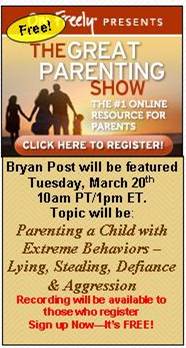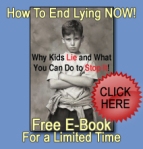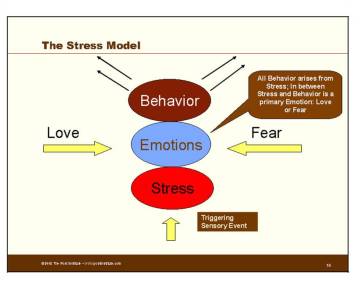Parenting Experts Share Their Wisdom: Your Success!
FREE FREE FREE
Interactive – Submit Questions Online.
Replay Recordings Available for Limited Time!
Have you ever wondered:
How to discipline your children without ruining their
self-esteem?
How to put deal with your picky eaters?
How to protect your child from being bullied at school or online?
How to overcome your own parenting issues so as not to raise
children with hang-ups?
How to raise your children financially aware?
I know how hard parenting is, and that’s why I am excited
to tell you about a great show I’m taking part in. It’s
called the Great Parenting Show, the #1 Online Resource for
Parents and it promises to answer all of these questions
and some you haven’t even thought of!
This breakthrough 3- month series begins on Tuesday, March 13th at 10am PT, 11am MT, 12pm CT and 1pm ET so register right now to get more information: ==> http://greatparentingshow.com/cmd.php?af=1435900
Not only are the interviews available online, but they are free to you AND you can ask your top parenting question of me, and the other 23+ great parenting experts!
I will be speaking on Tuesday, March 20, 2012. My topic
will be Parenting a Child with Extreme Behaviors –Lying, Stealing, Defiance, Aggression – so don’t miss the chance to ask me your questions live over the web! Register here: ==> http://greatparentingshow.com/cmd.php?af=1435900
Here are just a few of the other very well-known speakers included on the Great Parenting Show:
** Dr. Jane Nelsen, is the prolific author of Positive Discipline and other parenting books, past Oprah guest and major influence on other educators,
** Neale Donald Walsh, best-selling author of Conversations with God, will talk about how to make spirituality accessible to your children,
** Sharon Lechter, coauthor of Rich Dad, Poor Dad, and creator of the Thrive Teen Game, will talk about raising financially literate children,
** Dr. Joe Rubino is an internationally acclaimed expert, success coach and best-selling author, talking about raising kids with high self-esteem,
**Shelly Lefkoe, author and parenting educator talking about making parenting easier and more fun, WITHOUT sabotaging your children’s future,
** Amy McCready, is a popular parenting educator who will share her proven tips to get your kids to behave without nagging, , reminding or yelling.
** Dr. Deborah Rozman, is a psychologist who has co-authored over a dozen books, as well as co-founded the HeartMath Institute, And so many more!
Check out the full line up here and register to get more information: ==> http://greatparentingshow.com/cmd.php?af=1435900
Again, this three month weekly training is completely free to you! We’ll be sharing the best of the best strategies, tactics and processes we know to help you with your parenting issues and make the journey happier, and much more successful!
I hope you take advantage of this unique chance to have get answers to virtually all parenting issues!
Calls are free, so space is limited. Reserve your spot by clicking on this link now: ==> http://greatparentingshow.com/cmd.php?af=1435900
After you register, keep an eye out for Jacqueline’s email with your details for listening in on the calls.
I look forward to interacting with you.
Choose Love,
B
 P. S. By the way, if you can’t make the LIVE CALLS Every Tuesday & Thursday, don’t worry … they’ve got you covered! The interviews will be recorded and will be available after each show for a limited time so you won’t miss a thing. Make sure you sign up now to get these replay recordings. ==> http://greatparentingshow.com/cmd.php?af=1435900
P. S. By the way, if you can’t make the LIVE CALLS Every Tuesday & Thursday, don’t worry … they’ve got you covered! The interviews will be recorded and will be available after each show for a limited time so you won’t miss a thing. Make sure you sign up now to get these replay recordings. ==> http://greatparentingshow.com/cmd.php?af=1435900
 Have you read Bryan Post’s FREE e-Book How to End Lying Now: Why Kids Lie and What You Can Do to Stop It? Post offers a radical new understanding of difficult children – adopted, foster, diagnosed, biological, or grandchild. The Post Institute has helped families and professionals move from fear to love in their struggles with challenging behaviors such as defiance, disrespect, self-mutilation, cutting, hoarding or gorging food, stealing lying and more! This free book can get you started – see your child’s behaviors in an entirely different light and learn how to apply this approach. A truly love based family-centered model for many behaviors and diagnoses.
Have you read Bryan Post’s FREE e-Book How to End Lying Now: Why Kids Lie and What You Can Do to Stop It? Post offers a radical new understanding of difficult children – adopted, foster, diagnosed, biological, or grandchild. The Post Institute has helped families and professionals move from fear to love in their struggles with challenging behaviors such as defiance, disrespect, self-mutilation, cutting, hoarding or gorging food, stealing lying and more! This free book can get you started – see your child’s behaviors in an entirely different light and learn how to apply this approach. A truly love based family-centered model for many behaviors and diagnoses.
 Post Daily Parenting Inspiration and more on Facebook! Make sure you stop by our Facebook page often for Daily Dose of Parenting Oxytocin, Special Discounts, Offers, Videos, News and whatever else we can pass along to our committed parents and professionals. This is a place to learn, play and interact with other committed parents and professionals and WIN prizes!
Post Daily Parenting Inspiration and more on Facebook! Make sure you stop by our Facebook page often for Daily Dose of Parenting Oxytocin, Special Discounts, Offers, Videos, News and whatever else we can pass along to our committed parents and professionals. This is a place to learn, play and interact with other committed parents and professionals and WIN prizes!
 Parenting Attachment Challenged Children “Hands-On” Home Study Course
Parenting Attachment Challenged Children “Hands-On” Home Study Course
Want Serious Help — Seriously? This may be the answer you have been praying for. There really can be peace in the family with your child. Bryan Post‘s Powerful new program is now available and includes the new 5 Hour Course on CD-Rom to accompany the workbook and 6 Hours of Video. This new program provides all the tools and understanding you need in order effectively parent your challenging kids. The home study course for parenting the child with challenging behaviors is life changing and is only meant for the serious parent or professional This course with accompanying workbook and the 5 hours of course material on CD-Rom to follow along will make the concepts easy to work with. You will have step-by-step instructions on how to create a therapeutic healing environment for children with trauma histories. If nothing else works for your child, this may be the training program you have been praying for. This best-selling package will start you on the road to restoring peace in your family and give you a running start! You will never know unless you try this, but you might always wonder.
For more of Bryan Post’s unique truly love based family centered approach for managing children with challenging behaviors, visit his websites:
- www.postinstitute.com – A Radical New Understanding of Difficult Children resource site. Lots of free stuff and training materials.
- www.reactiveattachmentdisorderparenting.com – The Parenting Course for parents & professionals with RAD kids and many other challenging behaviors and diagnoses.
- www.oxytocincentral.com – Resource site for the latest info and research on Oxytocin, the hormone responsible for attachment and bonding.
- www.postinnercircle.com – Where Desperate Parents Come for Solutions and Support. You Are Not Alone. If there were a way to personally interact with Bryan Post on a regular basis, would you be interested? If there were a community of other parents and professionals who wanted peace and harmony in their families as much as you, and you could learn from them, would you be interested in joining them?
If you’d like to receive a FREE copy of our Post Parenting Toolbox each week, sign up on our home page. Click on the image here to see the latest Parenting Toolbox.







 No Shame: Parenting is hard. Simple, but hard. Bryan Post offers three simple things to avoid in a love based parenting paradigm. I have found these tips to be invaluable as they help keep me from triggering the negative feedback loops I so often get stuck in. Eliminating these three bad parenting behaviors has allowed me to be less authoritative and more influential in my parenting – thereby more loving. Although they are indeed simple to define, they are in my experience difficult to overcome. Mindfulness, discernment, and perseverance has shown me where the potholes lie, and gives me the choice to avoid or step into with my interactions with my children. Seeing where the potholes lie is more than half the battle.
No Shame: Parenting is hard. Simple, but hard. Bryan Post offers three simple things to avoid in a love based parenting paradigm. I have found these tips to be invaluable as they help keep me from triggering the negative feedback loops I so often get stuck in. Eliminating these three bad parenting behaviors has allowed me to be less authoritative and more influential in my parenting – thereby more loving. Although they are indeed simple to define, they are in my experience difficult to overcome. Mindfulness, discernment, and perseverance has shown me where the potholes lie, and gives me the choice to avoid or step into with my interactions with my children. Seeing where the potholes lie is more than half the battle. Your voice is getting louder, yelling or screaming because you believe “if it doesn’t work do it louder”;
Your voice is getting louder, yelling or screaming because you believe “if it doesn’t work do it louder”;